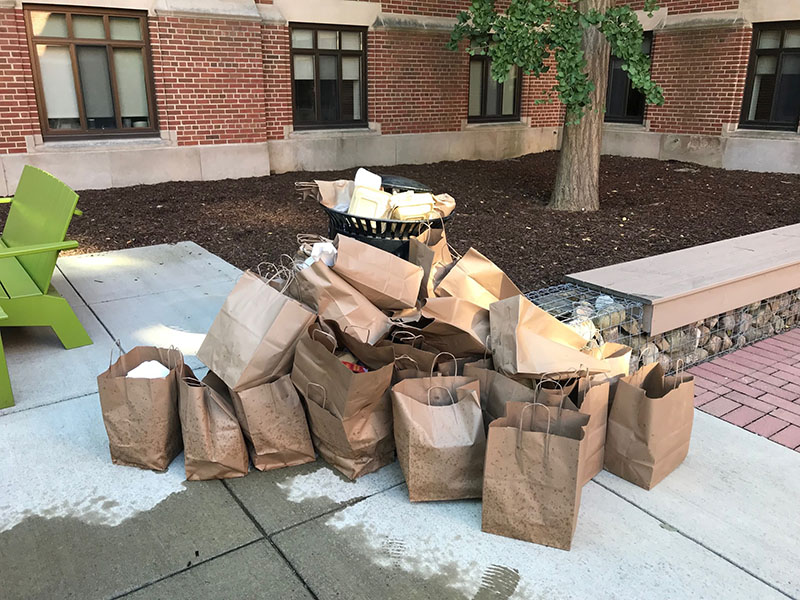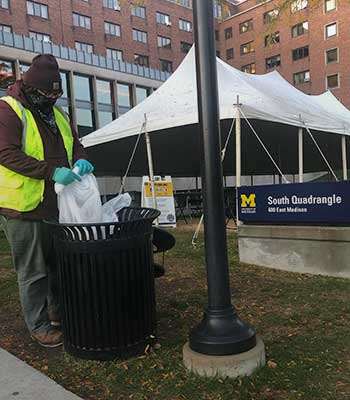In response to COVID, MDining is providing packaged to-go meals (95,000 per week!) so students can eat while safely distanced.
This shift in dining operations has had a trickle-down effect on many aspects of F&O’s work. Primary challenges included responding to increased waste volume and unpredictable traffic patterns.

Another concern was potential increased contamination of compost and recycling. To minimize landfill waste as much as possible under these conditions, MDining worked diligently to ensure most of the packaging is compostable—a notable commitment during a time of constrained budgets. This is good, but also brought challenges from placing bins in areas typically considered too public and uncontrolled for successful “clean” recycling and compost collection.

As the fall semester approached and got underway, Waste Management Services (WMS), Custodial Services, Grounds Services, the Office of Campus Sustainability, and Student Life Facilities collaborated to find solutions to the strain on existing infrastructure and processes. Example responses include:
- Grounds Services increased their time spent servicing outdoor bins to address the waste accumulating near dining halls such as the quads, Mojo, Bursley, and the outdoor canopies sponsored by the Provost’s Office. Similarly, WMS staff are working Sunday mornings to empty dumpsters and carts to keep up with the volume.
- Acquiring and placing new bins in high-traffic areas and larger capacity carts at high-volume loading docks. Also, WMS placed additional dumpsters at several residence halls to collect waste from the outdoor bins. In one savvy solution, Grounds Services collaborated with Athletics to borrow over 60 cans that were not in use at the football stadium.
- Improved processes for communicating about capacity have made it easier to respond when additional services or alternatives are needed.
- The unpredictability of the waste stream required F&O to adapt on the fly. It was not clear to what extent students would take meals to their rooms, indoor and outdoor common spaces, or classrooms. F&O groups have had to be flexible, in many cases being “on-call” for removal as necessary until traffic patterns began to normalize. With the onset of cooler weather, the teams expect traffic patterns to change yet again, requiring continued flexibility.
Perhaps the greatest challenge is contamination (incorrectly placed items) in the recycling and compost streams, simply because it relies so heavily on the behavior of individuals. The issue is compounded by the volume of waste and lack of space and time for proper sorting. OCS and Student Life partnered to develop signage, videos, and other educational materials to educate students to sort and reduce the volume of waste.
Together, the team is responding to a changing environment and evolving needs to maintain our commitment to a clean, safe, and sustainable campus.

